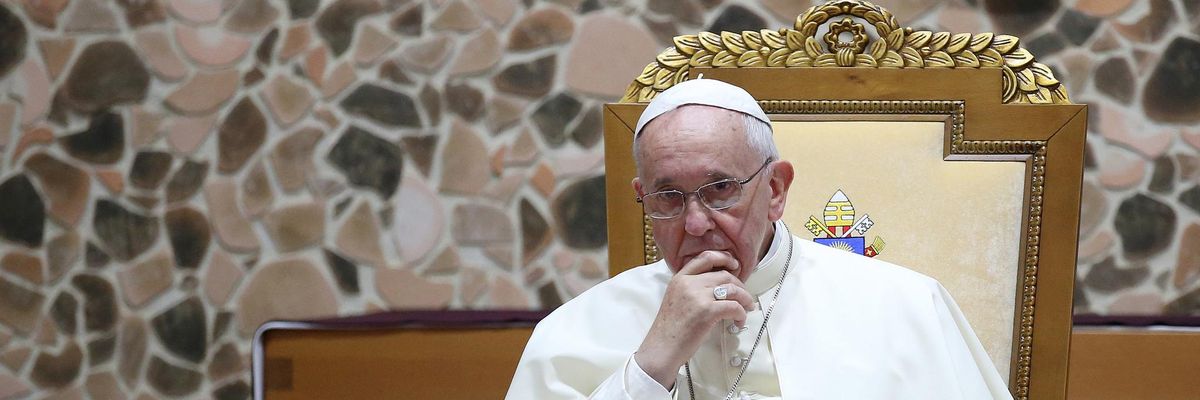At a Vatican seminar attended by Nobel Peace Prize winners, United Nations officials, and representatives from countries with nuclear capabilities, Pope Francis urged leaders to move towards nuclear disarmament on Friday.
The pontiff's speech came a week after he made a plea for an end to "useless massacres" in an anti-war speech at a military cemetery in Italy, in which he alluded to the rising tensions between the U.S. and North Korea, exacerbated in recent months by President Donald Trump's bellicose threats in response to Kim Jong-un's nuclear tests.
Pope Francis argued that the insistence on maintaining nuclear arsenals by nations including the United States, North Korea, and France "creates nothing but a false sense of security," and therefore total disarmament is the only acceptable solution.
Nuclear weapons, he said, "exist in the service of a mentality of fear that affects not only the parties in conflict but the entire human race. International relations cannot be held captive to military force, mutual intimidation, and the parading of stockpiles of arms."
"Weapons that result in the destruction of the human race are senseless even from a tactical standpoint," added the pope.
Pope Francis also expressed "gratitude and appreciation" for the U.N.'s recent treaty calling for an elimination of nuclear weapons. The agreement was adopted in July, but all the nuclear states abstained from voting. So far, three parties have ratified the treaty.
The seminar signified a shift in the Catholic Church's tolerance of the existence of nuclear programs. Bishops in the U.S. expressed a "strictly conditional moral acceptance of deterrence" but the Pope's recent remarks indicate that the conditions may now call for a policy change.
"The church's tolerance of deterrence was predicated on it being a step toward disarmament," said Stephen Colecchi, director of the U.S. bishops' conference's Office of International Justice and Peace, in an interview with the National Catholic Reporter. Today, regimes are "planning modernization of nuclear weapons. You don't modernize a weapons system that you intend to disarm from. So I think deterrence is on very thin moral grounds."

